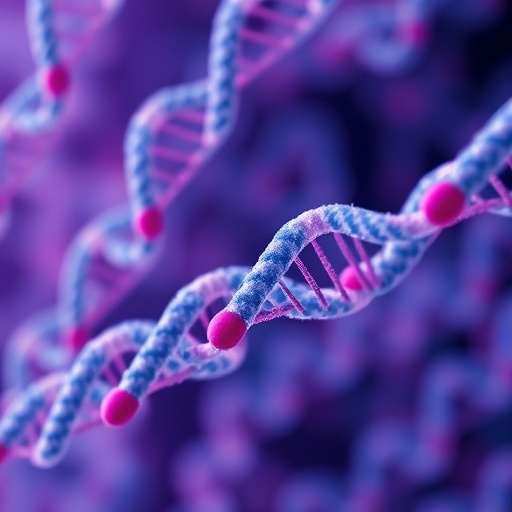In recent years, the landscape of transplantation has undergone radical changes, most notably through advancements in our understanding of genetics and its influence on donor compatibility. Among these developments, significant attention has been directed toward the non-HLA (Human Leukocyte Antigen) genetic factors that can impact the outcomes of living donor transplants. The intricate interplay between genetics and transplantation is paving the way for personalized medical approaches, potentially enhancing the success rates or mitigating complications post-surgery.
Living donation has always presented a unique set of challenges and opportunities due to the variety of genetic markers that determine compatibility. Traditionally, HLA matching has been the gold standard in assessing donor-recipient compatibility. However, emerging research has begun to indicate that focusing solely on HLA may not provide a comprehensive understanding of a transplant’s success. Non-HLA genetic factors are now being recognized as crucial elements that may significantly influence transplant outcomes. These factors can include various genes responsible for immune response, inflammation, and tissue compatibility that extend beyond the HLA complex.
Far from being a niche area of research, non-HLA genetics has begun to gain traction, prompting hospitals and transplant centers to reconsider how they evaluate potential living donors. There is an ever-increasing body of evidence suggesting that these genes can predict not only how well a patient will receive a transplant but also other vital metrics of transplant health, such as long-term graft survival and potential rejection episodes. Researchers are now fervently exploring the breadth of non-HLA factors to develop more sophisticated screening methods.
An essential aspect of this research involves understanding specific alleles and their responses in transplant scenarios. One pivotal factor in the non-HLA genetics field is the killer immunoglobulin-like receptors (KIR) that exert a significant influence on the immune responses of individuals. Variations in these receptors can dictate how a patient’s immune system interacts with transplanted tissues. A mismatched KIR may contribute to adverse events such as acute rejection or chronic graft failure. Providing robust genotype information around KIR may help in selecting suitable living donor candidates who possess a better neutralized immune profile.
Another crucial avenue of exploration is the effect of cytokines and their receptors, which mediate inflammation and immune responses. Variations in genes associated with cytokine production can result in differential susceptibility to inflammatory responses. In transplantation, this can play a pivotal role; individuals with particular cytokine gene polymorphisms may either thrive post-transplant or suffer from prolonged inflammatory reactions, which can jeopardize graft integrity. The ongoing genomic initiatives and data repositories are progressively gathering detailed genetic profiles to explore these associations systematically.
Exploring the implications of donor-recipient genetic mismatches also extends into the realm of post-operative management. Insights garnered from non-HLA genetics can aid clinicians in tailoring immunosuppressive therapies according to the genetic predispositions of the recipient. For example, specific non-HLA-related parameters could delineate patients who may require more aggressive immunosuppression to mitigate risks of acute rejection versus those who could safely taper their medication under careful supervision. This personalized approach could not only enhance graft survival rates but also improve the quality of the recipient’s life by minimizing unnecessary drug side effects.
The integration of cutting-edge genomic technologies such as whole-genome sequencing and CRISPR gene editing are optimizing the exploration of non-HLA genetics. These technologies allow researchers to delve into vast genetic landscapes and delineate interaction networks that influence transplant outcomes. In the future, clinical practice may see the implementation of routine non-HLA genetic screening to guide donor selection, ultimately steering decisions toward more personalized and effective transplantation strategies.
In summary, the exploration of non-HLA genetics is not merely an academic endeavor; it holds profound clinical implications for the future of transplant medicine. Enhancing our understanding of the genetic components affecting transplant compatibility could mean a new dawn for living donation — a realm where not only traditional HLA matching is regarded, but a more holistic genetic picture is considered to enhance patient care and graft longevity.
Patient advocacy and public education will play a vital role in shaping the future landscape of living donation, as increases in awareness about genetic compatibility may enhance donor participation. The transplant community is challenged to bridge the gap between scientific discovery and clinical practice. The brighter the future for living donation appears, the more critical it becomes to align ongoing research with patient-centered approaches that can efficiently implement these findings in real-world settings.
As we stand on the precipice of these changes, the impact of non-HLA genetics on living donor candidates holds the promise of transforming transplantation outcomes globally. The dialogue between genetic research, clinical practice, and public engagement must continue to evolve. By fostering an informed community and an innovative spirit in research, the potential for groundbreaking advances in transplantation remains within reach.
In conclusion, the evolving landscape of transplantation in relation to non-HLA genetics represents a pivotal moment in the realm of medical science. While challenges remain, the future is ripe with possibilities for more precise and individualized transplant protocols that could ultimately lead to better patient outcomes. The time has come to reflect on what an era of precision medicine within the context of transplantation could achieve.
Subject of Research: Non-HLA Genetics and Their Impact on Living Donor Candidates
Article Title: Non-HLA Genetics and Application to Living Donor Candidates
Article References:
Caliskan, Y., Afsar, B., Afsar, R.E. et al. Non-HLA Genetics and Application to Living Donor Candidates.
Curr Transpl Rep 12, 37 (2025). https://doi.org/10.1007/s40472-025-00495-3
Image Credits: AI Generated
DOI: 10.1007/s40472-025-00495-3
Keywords: Non-HLA genetics, living donor transplants, transplant compatibility, immune response, cytokines, KIR receptors, graft survival, genetic screening, personalized medicine, transplantation outcomes.




